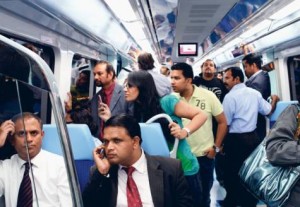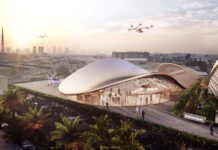By Saifur Rahman, Business Editor www.gulfnews.com
Dubai : When the US sneezed in the past, the rest of the world used to catch a cold, cough and probably pneumonia. However, things have changed dramatically indeed.

It seems now, if Dubai sneezes, the rest of the world catches a cold. It has become more evident since Wednesday, especially after the Dubai Government announced the restructuring of Dubai World, judging by the global media outcry. The impact of the announcement appears to have been felt more outside the UAE or Gulf Cooperation Council than in Dubai. The London Stock Exchange had, on Thursday, caught a cold — really. It had nearly frozen trading due to a technical problem.
The global knee-jerk reaction to Dubai’s announcement that it is restructuring Dubai World — the UAE’s largest holding company — has to a large extent overshadowed the main message: the government is taking a closer look “to ensure its commercial success”.
Also, the fact that two local banks subscribed to $5 billion worth of bonds went nearly unnoticed.
“We want to ensure resources are deployed in the full knowledge that they are used to enhance the businesses of the Dubai World Group, build on the restructuring that has already been taking place and ensure long-term commercial success,” Shaikh Ahmad Bin Saeed Al Maktoum, President of Dubai Civil Aviation and Chairman and Chief Executive of Emirates Airline and Group, in his capacity as Chairman of the Supreme Fiscal Committee, said in a statement on Thursday night, reassuring the market.
On Wednesday, the Government of Dubai, through its Department of Finance, announced the restructuring of Dubai World, saying it intends to ask all providers of financing for Dubai World and Nakheel to “stand still” and extend maturities until at least May 30, 2010.
“Dubai World has a portfolio of strategically important businesses and the restructuring will be designed to address financial obligations and improve business efficiency for the future,” the statement said.
“The standstill period for negotiating debt and restructuring of Dubai World and Nakheel could potentially leave the Dubai government in a better position to support its other government-related companies,” John Tofarides, Banking Analyst at Moody’s, said.
Kristian Overend, Partner, Killik & Co, said, “As the world’s centre of economic gravity heads from West to East, emerging markets become increasingly important to deliver superior returns although they will remain volatile, but this is part and parcel of the high risk/reward ratio. The higher-risk investor with a long-term view should hold his nerve.”
Shaikh Ahmad said the government’s intervention in Dubai World was carefully planned and reflects its specific financial position. The Government is spearheading the restructuring of this commercial operation with full knowledge of how the markets would react.
“We understand the concerns of the market and the creditors in particular. However we have had to intervene because of the need to take decisive action to address its particular debt burden,” Shaikh Ahmad said.
Impact
Overend said it is also important to remember that what happens to Dubai also has an impact on the credibility of its richer neighbours in the Gulf.
“Dubai’s debts are not even a quarter of the $400-$500 billion sovereign wealth fund neighbouring Abu Dhabi is sitting on,” he says.
“Dubai now accepts it has problems and will have to go through a period of pain before it can recover, but measures are starting to be taken and the emirate will continue to be a strategic trading hub between East and West.”
While most global economies have been reeling from the global financial crisis — which also impacted the UAE — Dubai has consistently delivered most of its promises.
In addition to the delivery of Dubai Mall — one of the world’s biggest malls, the Government has also opened the Dubai Metro — the region’s first urban mass transit system. In five week’s time, it will present to the world the tallest man-made tower, Burj Dubai.
All this is happening at a time when the global economy is struggling to move forward.
“The economic fundamentals, such as our highly developed infrastructure, strong transport and communications hub and regional financial centre will ensure Dubai remains an attractive regional market,” Shaikh Ahmad said.
Those who tried to convey the impression that this is the end of the world for Dubai have forgotten the strength and resilience of Dubai’s, and for that matter the UAE’s, economy.
Philipp Lotter, Senior Vice President for Corporate Finance Group at Moody’s said, “The Government’s decision to restructure highlights the Government’s intention to strictly adhere to its stated policy of supporting only those companies with viable long-term business prospects, which implies that support for distressed or weaker companies may be less forthcoming.”
Difficult times
Even in this difficult time, about 75 per cent of Dubai’s $20 billion bond programme has already been subscribed.
The latest subscription of $5 billion by National Bank of Abu Dhabi and Al Hilal Bank reflects the financial strength of the local banks in supporting the government in sharing the debt burden in time of need.
“If the repercussions remain confined to exposures to Dubai World and Nakheel, and based on current assumptions and expectations, UAE banks are likely to be able to absorb potential stress at their current rating levels,” Tofarides said.
The world is a strange place, and becoming stranger. One thing, however, is for sure — it’s becoming more globalised, integrated and most importantly, inter-dependent.


















